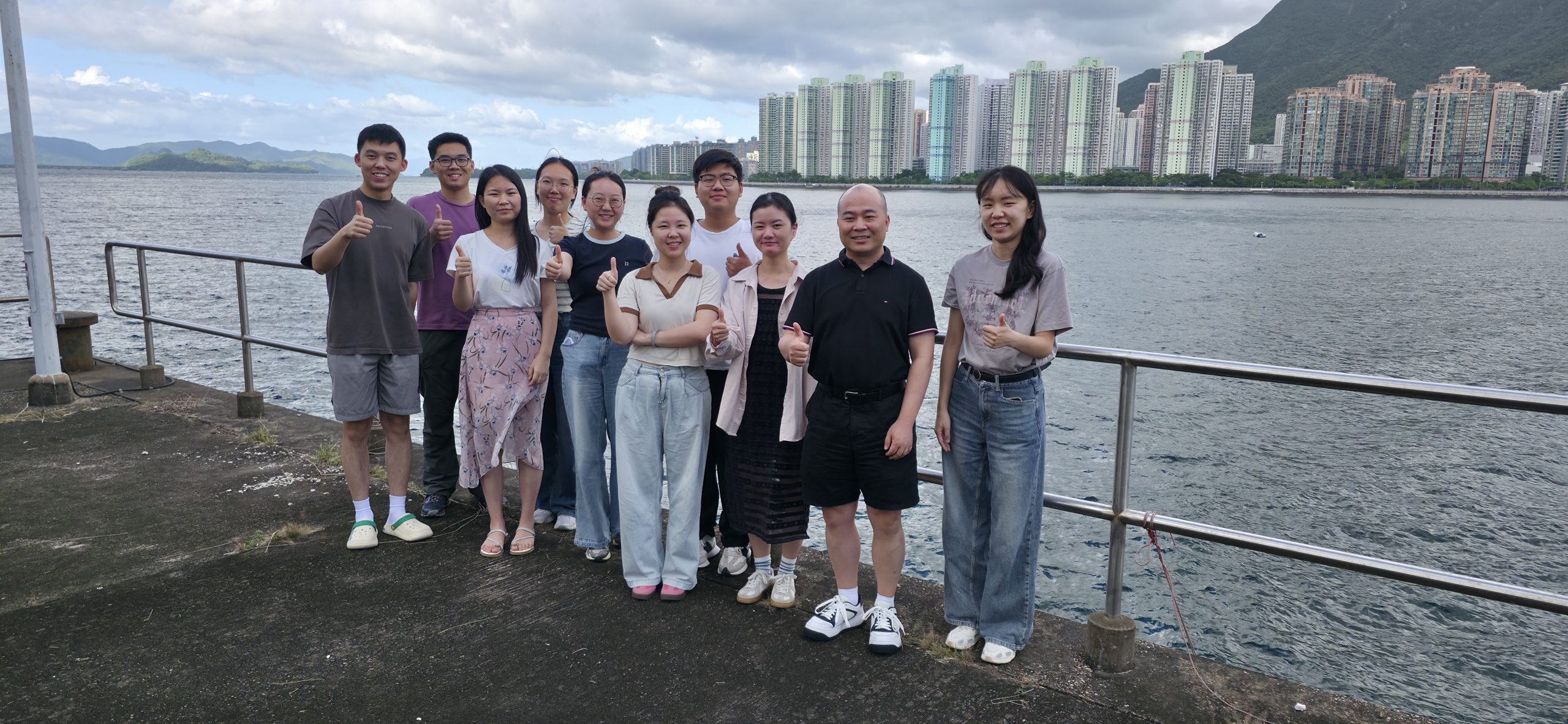Project title: Next-generation coral probiotics (CoPro) for coral restoration
Project lead: Prof. Haiwei Luo
Co-applicants: Prof. Christian R. Voolstra, Prof. Raquel Peixoto, Prof. Apple Pui-Yi Chui, Dr. Alexandra Seifert, Annisa Rahmadani, Febrianne Sukiato
Countries involved: China, Germany, Saudi Arabia, Indonesia
Takes place: Gili Asahan (Indonesia) and Hong Kong
Supporting institutions: The Chinese University of Hong Kong, University of Konstanz, King Abdullah University of Science and Technology (KAUST), SeaChange Indonesia
Total budget: USD $1,465,567
Duration: 36 months
Project overview
Probiotics are living microorganisms that, once ingested, bring health benefits to individuals. That’s why they are often consumed by humans as dietary supplements. Similarly, probiotic treatments are also beneficial for corals. Their efficiency in promoting coral health, improving recovery after disturbance (e.g., heat stress), and preventing mortality has been demonstrated for different coral species in both laboratory experiments and field trials. However, traditional probiotics are poorly retained in corals, thus repeated treatments during times of stress events are needed for the beneficial effects to be maintained. To overcome this challenge, this project aims to develop next-generation coral probiotic bacteria that come with improved incorporation and increased long-term retention in corals, minimizing the need for reapplications and reducing the intervention costs. For that purpose, the team will select and test different bacteria strains that have the potential to help corals better withstand thermal stress. Ultimately, the team envisions that this novel probiotic can be a cost-effective solution for coral conservation by combining it with coral restoration through inoculation in nurseries before outplanting corals to field sites.
Specific objectives
- Optimize the protocol of probiotic delivery in coral nursery facilities.
- Develop a framework to identify and select next-generation coral probiotic bacteria (strains).
- Demonstrate the efficacy of these probiotics in real-world applications.
How the objectives will be met
• Protocol optimization: evaluate how different dosing strategies affect probiotic incorporation and retention in the tissues of adult Acropora spp. This will involve testing various probiotic concentrations, inoculation frequencies, and treatment durations.
• Field trials in Hong Kong: Acropora pruinosa coral fragments will undergo one of three probiotic treatments: (1) no probiotic, (2) probiotic A*, or (3) probiotic B*. Incorporation and retention levels of each probiotic will be evaluated initially. The fragments will then be outplanted and monitored from April 2026 to September 2027, during which no further probiotics will be administered. Two natural heat stress events are expected during this period. In the field, the effectiveness of each probiotic will be assessed by quantifying the population size of the target probiotics in inoculated corals and comparing their ability to mitigate heat stress effects relative to the control populations.
• Field trials in Gili Asahan: next-generation probiotic strains will be isolated from local corals and characterized through genome sequencing. Strains that demonstrate the greatest enhancement of the host’s thermal tolerance will be applied as probiotics to Acropora spp. fragments in nurseries using the optimized inoculation protocol. Once the fragments are outplanted, both short-term and long-term metrics — including bleaching severity, coral growth, and coral cover — will be monitored to evaluate the efficacy of the applied probiotic.
* The two probiotics to be used in the Hong Kong field trial have already been identified and maintained in pure cultures in a laboratory setting.
Impact of the project
This project will pioneer a framework to identify, validate, and select next-generation probiotics that form strong, lasting partnerships with corals and significantly enhance their resilience to climate stress.
As part of the field trials, over 130 corals will be restored across two sites — Hong Kong and Gili Asahan (Indonesia) — with the Indonesian effort directly engaging local communities in nursery inoculation, outplanting, and long-term monitoring.
By integrating its findings into the “Coral Academy” environmental education program — already reaching 60 schools and over 30,000 students and teachers — this project ensures that its impact extends beyond reefs, fostering the next generation of ocean stewards.
Major highlights
- These probiotics will help reduce restoration costs by providing lasting resilience through nursery inoculation, safeguarding outplanted corals long-term and protecting the investment in restored corals.
- Three next-generation probiotics will be tested in the field with Acropora spp. corals.
- The framework will be globally applicable, enabling the cultivation, selection, characterization, and use of next-generation coral probiotics from any reef region.

Prof. Haiwei Luo (second on the right) and his research team (The Chinese University of Hong Kong).

